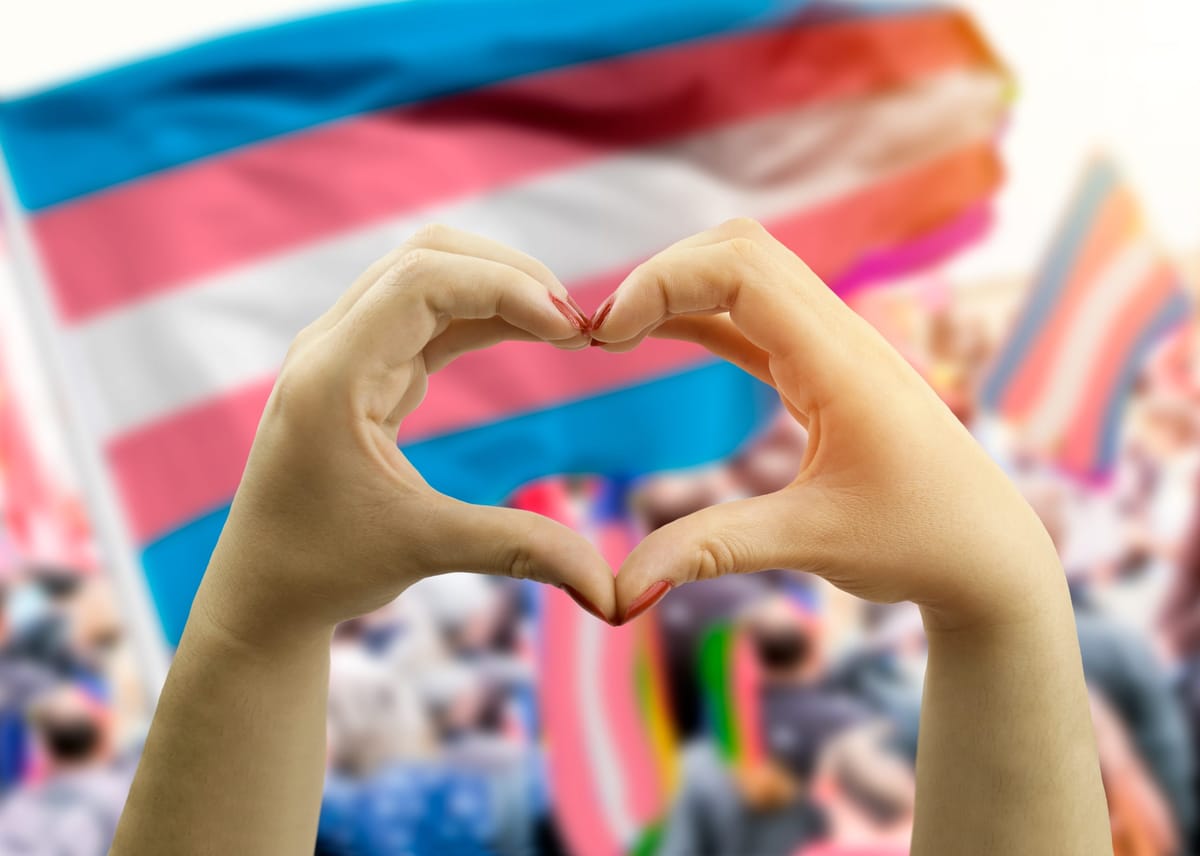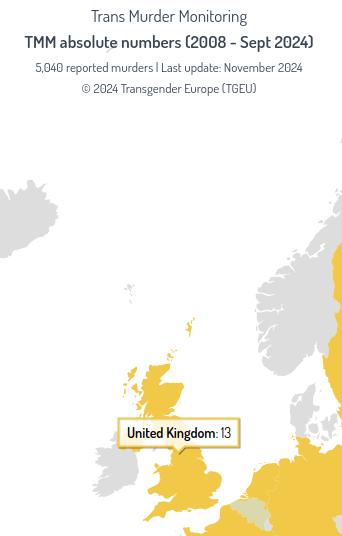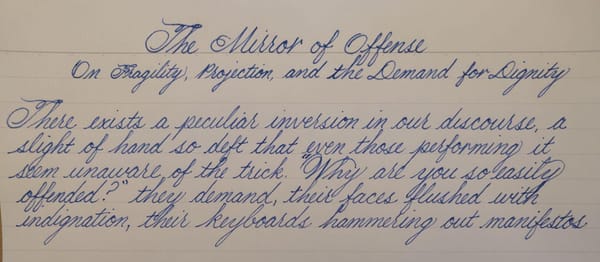Trans Inclusion: A Necessity, Not a Luxury
The Decadence of Privilege

The Decadence of Privilege
Debunking the Myths in Julie Bindel's 'Gender: A Luxury Belief
Hello there PITT crew, today we are going to talk about Julie Bindel's recent Substack article, "Gender: A Luxury Belief". In this piece, Bindel argues that transgender activism is a "decadent" ideology promoted by the privileged that harms working-class women. However, a closer look reveals that the article relies on a series of misrepresentations, hasty generalizations, and anecdotal fallacies to make its case.
Bindel starts by claiming that "there are droves of young trans people taking their own lives" because they are denied medical transition, and that "transwomen are being murdered at an alarming rate." They then pivot to arguing that trans activism actually represents "an excessive indulgence" and a "moral and cultural decline in values." This contradiction sets the tone for an article that consistently mischaracterizes trans people and their experiences.
One of the most egregious falsehoods comes early on, when Bindel offhandedly refers to the number of "trans people murdered in the UK (none)." This is simply untrue. While data is limited, Transrespect versus Transphobia Worldwide has documented at least 13 murders of trans people in the UK since 2008. The Trans Murder Monitoring project also provides abundant evidence of the epidemic of violence against trans individuals globally1. Bindel's casual dismissal of this reality is telling.

But of course, as any brave gender-critical activist knows, the real victims are those who have to hear about trans people existing. Cue the satirical anecdote: Local transphobe Joanne Doakes reported feeling "triggered and unsafe" after learning that a trans woman had moved in down the street. "It's a violation of my rights," Doakes bravely proclaimed, "I shouldn't have to be aware of the existence of people different from me." Truly a hero for our times.
Bindel goes on to suggest that trans women transition not to alleviate gender dysphoria, but because they see womanhood as "an open mouth, an expectant asshole, blank, blank eyes" and want to appropriate female oppression as an "exhilarating vitality." This incredibly bad-faith reading bears no resemblance to the lived experiences of actual trans women. As writer Julia Serano explains, gender dysphoria is something that most trans kids experience in an “insistent, persistent, and consistent way over time”, in contrast to the "desisters" studied by unsympathetic researchers2.
Bindel's misrepresentation here is part of a larger pattern of portraying trans people as entitled and delusional. They highlight incidents at elite universities to argue that trans activism is the province of the over-privileged. But this anecdotal fallacy ignores the fact that trans people come from all walks of life and face high rates of poverty, homelessness, and marginalization. A study by the National Center for Transgender Equality found that 29% of trans adults in the US live in poverty, compared to 14% of the general population. 52% of respondents had experienced homelessness at some point3. The more recent 2022 numbers are just as bad, or worse. 4
Far from being an "indulgence," access to trans healthcare is a matter of life and death for many. But in Bindel's world, it's frivolous "transwomen" demanding "breast augmentation surgery" who are to blame for women being denied cancer treatment. This false equivalence is as absurd as it is offensive. Improving healthcare for underserved women and respecting trans people's needs are not mutually exclusive. Trans people face numerous barriers to accessing appropriate, affordable care - from insurance exclusions to provider discrimination.5 But Bindel is more concerned with stoking fears than grappling with these complex realities.
But won't someone think of the poor put-upon transphobes who have to share space with the trans menace? Bindel frets about the "cry-babies" at an Ivy League school who had the audacity to...checks notes...provide a supportive environment for trans students facing a hostile speaker. The horror! Clearly, holding institutions accountable for treating marginalized students with basic decency is the real oppression. Cue the world's tiniest violin.
This anecdote, like many in the article, is presented devoid of context. Bindel conveniently omits the long history of harassment and discrimination trans students have faced on campuses. A 2019 study found that over a third of students said they would be uncomfortable having a trans roommate6. Another report detailed the myriad barriers trans students encounter, from housing discrimination to physical assault78. But sure, asking for a supportive space is the real injustice.
Throughout the piece, Bindel returns to the claim that the fight for trans rights is somehow at odds with the fight against male violence. They lambast trans activists for "banging on the windows" of a women's conference instead of listening to speakers discuss "being raped and tortured." This is a classic divide and conquer tactic that positions trans liberation as a distraction from "real" feminist issues.
In reality, many trans people are also survivors of sexual violence - at even higher rates than the general population. The 2015 U.S. Transgender Survey found that 47% of respondents had been sexually assaulted at some point in their lives9. Trans people are allies, not enemies, in the fight against patriarchal violence. Feminists like Julia Serano have long argued that the gender system that oppresses women is the same one that oppresses trans people. In Excluded, Serano writes: "attacking people for their gender expression" is "just another kind of sexism."10 Trans people are allies, not enemies, in the fight against patriarchal violence.
Bindel's real gripe seems to be with the very concept of self-identification, which they call "state-sanctioned narcissism." But respecting people's stated identity is a basic matter of human dignity. It costs nothing to address someone by their chosen name and pronouns. What does cause harm is the kind of fearmongering that portrays trans women as inherently predatory and trans men as misguided victims.
As we've seen, this article relies on a series of logical fallacies and factual distortions to paint trans activism as a decadent bourgeois trend. The reality is far more complex. Trans people face systemic oppression, violence, and marginalization. Supporting their rights does not mean ignoring the interests of women as a whole. It's time to reject these divide and conquer tactics and build real solidarity.
So the next time you hear someone railing against the dangers of the "trans agenda," remember: the real luxury is having enough privilege to ignore the struggles of one of the most vulnerable groups in our society. The rest of us will be over here, doing the hard work of fighting for liberation for all.
"TMM Update Trans Day of Remembrance 2021." Transrespect versus Transphobia Worldwide, 11 Nov 2021, https://transrespect.org/en/tmm-update-tdor-2021/. ↩
Serano, Julia. "Detransition, Desistance, and Disinformation: A Guide for Understanding Transgender Children Debates." Medium, 2 Aug 2016, https://juliaserano.medium.com/detransition-desistance-and-disinformation-a-guide-for-understanding-transgender-children-993b7342946e. ↩
James, S. E., Herman, J. L., Rankin, S., Keisling, M., Mottet, L., & Anafi, M. "The Report of the 2015 U.S. Transgender Survey." National Center for Transgender Equality, Dec 2016, https://transequality.org/sites/default/files/docs/usts/USTS-Full-Report-Dec17.pdf. ↩
Sandy E. James, Jody L. Herman, Laura E. Durso, & Rodrigo Heng-Lehtinen (2024). Early Insights: A Report of the 2022 U.S. Transgender Survey. NCTE. https://transequality.org/sites/default/files/2024-02/2022%20USTS%20Early%20Insights%20Report_FINAL.pdf ↩
Safer, J. D., Coleman, E., Feldman, J., Garofalo, R., Hembree, W., Radix, A., & Sevelius, J. (2016). Barriers to healthcare for transgender individuals. Current opinion in endocrinology, diabetes, and obesity, 23(2), 168–171. https://doi.org/10.1097/MED.0000000000000227 ↩
Goldberg, A. E. "Transgender Students in Higher Education." The Williams Institute, Aug 2018. https://williamsinstitute.law.ucla.edu/publications/trans-students-higher-education/. ↩
Michael R. Woodford, Jessica Y. Joslin, Erich N. Pitcher & Kristen A. Renn (2017) A Mixed-Methods Inquiry Into Trans* Environmental Microaggressions on College Campuses: Experiences and Outcomes, Journal of Ethnic & Cultural Diversity in Social Work, 26:1-2, 95-111, DOI: 10.1080/15313204.2016.1263817 ↩
Goldberg, A. E., Kuvalanka, K. A., Budge, S. L., Benz, M. B., & Smith, J. Z. (2019). Health care experiences of transgender binary and nonbinary university students. The Counseling Psychologist, 47(1), 59–97. https://doi.org/10.1177/0011000019827568 ↩
NCTE - See 3 Above., ↩
Serano, Julia. "Excluded." Seal Press, October 01, 2013, https://juliaserano.com/excluded.html. ↩


